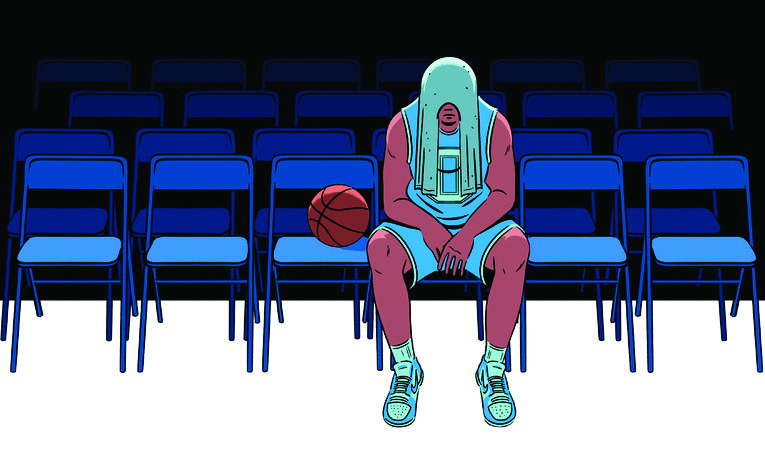For the past two years, amidst numerous lockdowns, athletics have repeatedly been shut down in accordance with government and university public health regulations. Without access to equipment or athletic facilities, many athletes were unable to practice their sport. What once served as a source of regular exercise and stress relief was now taken away from them..
Athletes were often left in the dark regarding when they could return to training or when the athletic season would resume. Varsity soccer player Victor Henry, U2 Science, was among the many athletes who faced such struggles over the past two years.
“COVID gave me anxiety as to how long I’d go without playing soccer and if I’d lose my level,” Henry said in an interview with The McGill Tribune. “Especially after recently joining the team, I wanted to have the best performance possible.”
The combination of this drastic change in lifestyle and increased pressure chipped away at the mental wellbeing of many athletes. Dr. Gordon Bloom, a professor from McGill’s Department of Physiology and Physical Education, has conducted studies looking at virtual interventions for athletes struggling with mental health. According to Bloom, there is a lack of empirical data regarding the effect of isolation on athletes.
“I’m not aware of any research that ties in to lack of physical exercise, isolation, and performance, so to speak. I suspect we’ll start seeing a lot of that research getting published from 2022-2025,” Bloom wrote in an email to the Tribune. “For example, we did a virtual coach mentoring intervention during COVID and we’ve only just submitted the [manuscript] for review. It likely won’t be published for another year and a half.”
Isolation and confinement have also affected the way athletes approach their sport. For Henry, the prolonged isolation increased his performance anxiety.
“Because of COVID, we’ve had very limited games and practices this semester,” Henry said. “This means we have few chances to prove our worth on the team, making every game we participate in that much more important and stressful.”
Bloom hypothesizes that there is a correlation between performance anxiety and prolonged isolation. Despite being unable to connect in person, many teams engaged in social activities online to alleviate the stressful parts of athletic performance.
“A lot of my interventions with teams at the start of COVID involved ‘connecting’ athletes with their teammates via Zoom or other social media outlets,” Bloom wrote. “A lot of athletes’ identity is tied to their sport, and the people who are a part of their inner circle. Most sport psychology professionals worked with the coaches of their teams to encourage ways to keep people connected.”
Many athletes, especially those struggling with their mental wellbeing, will seek the help of a sports psychologist to help improve both their mental health and physical performance.
“The field of sport psychology has accumulated a large amount of empirical research on the psychological aspects of sport, from how psychological characteristics can affect sport performance to how participating in sport can affect psychological characteristics,” Bloom wrote.
According to Bloom, there is mounting empirical evidence pointing to the importance of mind-body wellness in athletic performance. In his capacity as a sports psychology practitioner, Bloom has seen firsthand the impact of psychological interventions on athlete student wellness.
Bloom explained that since the start of the COVID-19 pandemic, his consultants have been working with athletes to map out the impacts of social isolation both inside and outside of their sport.
McGill’s lack of transparency regarding sporting decisions further has exacerbated the negative effects of the pandemic on the mental wellness of student athletes. The cancellation of nine varsity sports at the beginning of the 2021-2022 season left many athletes who were hoping to get back to the grind disheartened.
McGill’s initiative to support varsity athletes through sports psychologists is a great one. Still, the institution needs to recognize the crucial importance college athletics holds for university students—and the effect repeated cancellations have on athletes’ mental health. After two years of isolation, uplifted only by the hope of returning to competition and practice, these athletes deserve more than a quick and sudden send-off.








